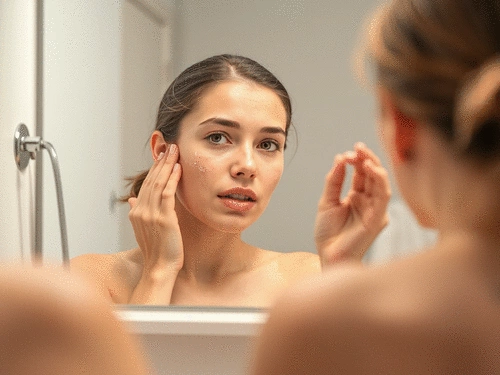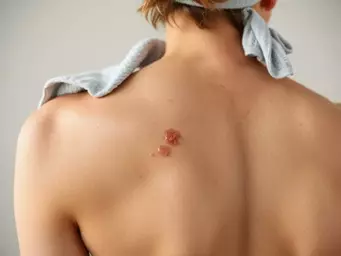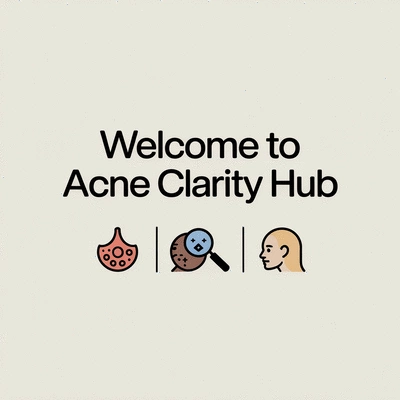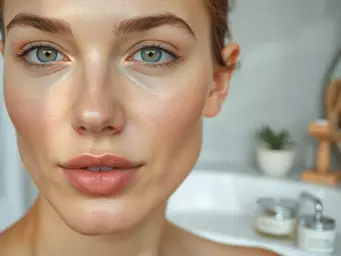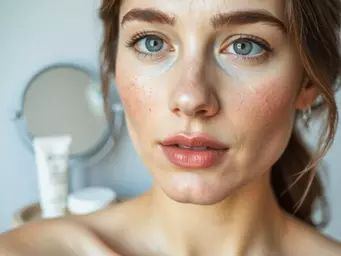Many believe acne is just a teenage affliction, but the truth is often much more complex. Cystic acne, in particular, can be a painful and emotional journey for many. Understanding its causes and effects can empower you to take charge of your skin health and emotional well-being.
What You Will Learn
- Cystic acne is distinct from regular acne, presenting as deep, painful cysts under the skin.
- Hormonal changes during puberty, menstruation, and pregnancy are significant contributors to cystic acne.
- Emotional impacts of cystic acne include increased anxiety, depression, and body image issues.
- Support resources, such as therapy and online communities, can aid in coping with the psychological effects of cystic acne.
- Dispelling common myths about acne can lead to better understanding and management of the condition.
Cystic Acne vs. Other Acne Types and Contributing Factors
This visual compares the characteristics of cystic and regular acne, alongside key factors contributing to cystic breakouts.
Acne Type Comparison
Cystic vs. Regular Acne
Cystic Acne
- • Deep, inflamed cysts
- • Painful, can cause scarring
Regular Acne
- • Surface blemishes
- • Less painful, less scarring
Key Causes
Root Causes of Cystic Acne
- ▶ Hormonal Factors: Puberty, menstruation, pregnancy.
- ▶ Environmental: Pollution, humidity, harsh products.
- ▶ Genetic Predisposition: Family history of acne.
Psychological Impact
Emotional Toll of Severe Acne
- ▶ Increased anxiety
- ▶ Depression, hopelessness
- ▶ Body image issues, low self-esteem
Understanding Cystic Acne: Definition and Causes
Cystic acne is one of the most severe forms of acne, often characterized by painful, swollen cysts beneath the skin. Unlike regular acne, which may surface as pimples or blackheads, cystic acne can lead to deep inflammation and is more challenging to treat. Understanding its unique attributes is crucial for anyone experiencing outbreaks. If you’ve ever felt like your acne is “more than just skin deep,” you’re not alone! Let’s explore what makes cystic acne distinct.
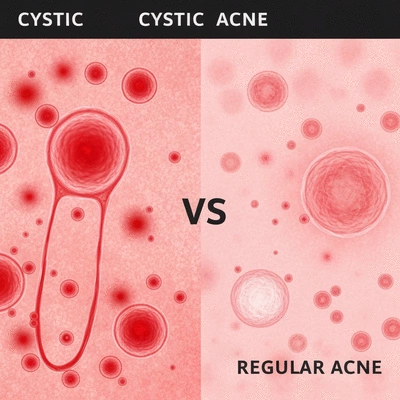
What is Cystic Acne and How is it Different from Other Forms?
Cystic acne occurs when your pores become clogged with excess oil, dead skin cells, and bacteria. This blockage leads to inflammation and the formation of deep, painful cysts. In contrast, other types of acne, like papules or pustules, are typically less severe and often don’t penetrate as deeply into the skin. Understanding these differences can help you identify the right treatment options. More information on the characteristics of cystic and nodular acne can be found on Medical News Today.
- Cystic Acne: Deep, inflamed cysts; painful and can cause scarring.
- Regular Acne: Includes blackheads, whiteheads, and surface blemishes; less painful.
- Hormonal Acne: Linked to hormonal fluctuations; can appear as cysts but usually less severe.
Recognizing the signs of cystic acne is the first step toward effective management. If you notice painful lumps under the skin, it might be time to seek help.
Root Causes of Cystic Acne: Hormonal and Environmental Factors
Several factors contribute to the development of cystic acne, with hormonal changes and environmental influences playing significant roles. During puberty, menstruation, or pregnancy, hormonal fluctuations can trigger the overproduction of oil in your skin. This excess oil can lead to blockages and result in cystic breakouts. Environmental factors like pollution and harsh weather can also exacerbate your skin condition. For a deeper dive into the pathophysiology of acne, including hormonal influences, you can refer to insights from PMC NCBI NLM.
- Hormonal Factors: Fluctuations during puberty, menstruation, pregnancy, or hormonal disorders.
- Environmental Influences: Pollution, humidity, and exposure to harsh skincare products.
- Genetic Predisposition: Family history of acne can increase your risk.
By identifying these triggers, you can take proactive steps to minimize their impact on your skin.
Exploring Hormonal Acne: Its Connection to Cystic Breakouts
Hormonal acne is particularly prevalent among adults and teenagers. It often manifests as cystic acne, especially around the jawline, chin, and cheeks. The connection lies in the hormonal fluctuations that can increase oil production, leading to clogged pores. Understanding how hormones affect your skin can empower you to manage your acne better.
- Key Hormones: Androgens, estrogen, and progesterone.
- Timing of Breakouts: Often coincides with menstrual cycles for many women.
- Treatment Strategies: Hormonal therapy, lifestyle changes, and specialized skincare routines.
Recognizing the link between your hormones and cystic acne can be a game-changer. It opens up avenues for tailored treatments that can lead to clearer skin. For an expert overview of the latest approaches to managing acne, including hormonal considerations, explore this article from Medical Independent.
Pro Tip
Did you know? Keeping a consistent skincare routine can significantly reduce the frequency and severity of cystic acne breakouts. Focus on using non-comedogenic products that won't clog your pores, and consider incorporating ingredients like salicylic acid or benzoyl peroxide, which can help keep your skin clear and healthy.
Addressing the Psychological Impact of Cystic Acne
Living with cystic acne can take a significant emotional toll. Many individuals experience feelings of embarrassment, anxiety, and low self-esteem due to their skin condition. It’s more than just a physical issue; it often affects how we perceive ourselves and interact with others. I've seen this firsthand in my practice at Acne Clarity Hub, where many patients share their struggles with confidence and body image.
The emotional impact of severe acne can lead to social withdrawal and even depression. It's crucial to acknowledge these feelings and understand that it’s okay to seek help. Remember, you're not alone in this journey! Many people experience similar challenges, and there are constructive ways to cope.
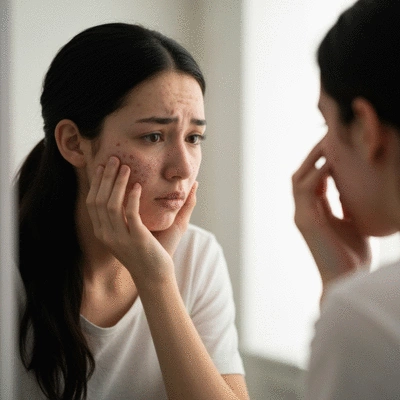
Understanding the Emotional Toll of Severe Acne
Cystic acne can significantly affect daily life, often leading to:
- Increased anxiety: Concerns about breakouts can prevent you from enjoying social events.
- Depression: Persistent acne can lead to feelings of hopelessness and despair.
- Body image issues: You may become overly critical of your appearance, impacting self-esteem.
These emotional responses are valid and can impact various aspects of life, including relationships and career aspirations. It's important to recognize that taking care of your mental health is just as important as managing your skin condition.
Support Resources for Individuals Struggling with Cystic Acne
Finding support can make a world of difference when facing the challenges of cystic acne. Here are some helpful resources:
- Support groups: Connecting with others who understand your experience can provide comfort.
- Therapists: A mental health professional can help address feelings of anxiety and depression.
- Online forums: Websites like Acne Clarity Hub offer community support and shared experiences.
Utilizing these resources can help you feel less isolated and provide you with coping strategies to better manage the emotional impacts of cystic acne. Seeking support isn't a sign of weakness; it's a step toward healing.
Exploring Acne Myths and Their Impact on Affected Individuals
There are many myths surrounding acne that can further complicate how individuals perceive their condition. Dispelling these common misconceptions can empower yourself:
- Myth 1: Acne is only a teenage problem. (Fact: It can occur at any age!)
- Myth 2: Poor hygiene causes acne. (Fact: Over-washing can actually irritate your skin!)
- Myth 3: Eating chocolate and greasy foods causes breakouts. (Fact: Diet's impact varies for each person.)
Believing in these myths can lead to confusion and frustration. Educating yourself about cystic acne and its true causes is an essential part of your journey toward clearer skin. Remember, knowledge is power!
Frequently Asked Questions About Cystic Acne
- Q: What distinguishes cystic acne from other types of acne?
- A: Cystic acne is characterized by deep, painful, inflamed cysts beneath the skin, which can lead to scarring. In contrast, regular acne involves more superficial blemishes like blackheads and whiteheads, and is typically less painful.
- Q: What are the primary causes of cystic acne?
- A: Key causes include hormonal fluctuations (during puberty, menstruation, or pregnancy), environmental factors (like pollution and humidity), and genetic predisposition (a family history of acne).
- Q: How does hormonal acne relate to cystic breakouts?
- A: Hormonal acne often manifests as cystic breakouts, particularly around the jawline, chin, and cheeks. This connection is due to hormonal fluctuations increasing oil production, which can clog pores and lead to severe inflammation.
- Q: What are the emotional impacts of living with cystic acne?
- A: The emotional toll can be significant, leading to increased anxiety, depression, social withdrawal, and body image issues due to feelings of embarrassment and low self-esteem.
- Q: What resources are available to help individuals cope with the psychological effects of cystic acne?
- A: Support resources include joining support groups, seeking guidance from mental health professionals (therapists), and engaging with online forums or communities that offer shared experiences and coping strategies.
Recap of Key Points
Here is a quick recap of the important points discussed in the article:
- Cystic acne is characterized by painful, swollen cysts and is more severe than regular acne.
- Root causes include hormonal fluctuations, environmental factors, and genetic predisposition.
- Understanding the connection between hormones and cystic acne can help tailor effective treatment strategies.
- Emotional impact of cystic acne can lead to anxiety, depression, and body image issues.
- Seeking support resources, such as support groups and therapists, can aid in managing the psychological effects.
- Dispelling acne myths is crucial for empowering individuals to take informed steps toward clearer skin.

